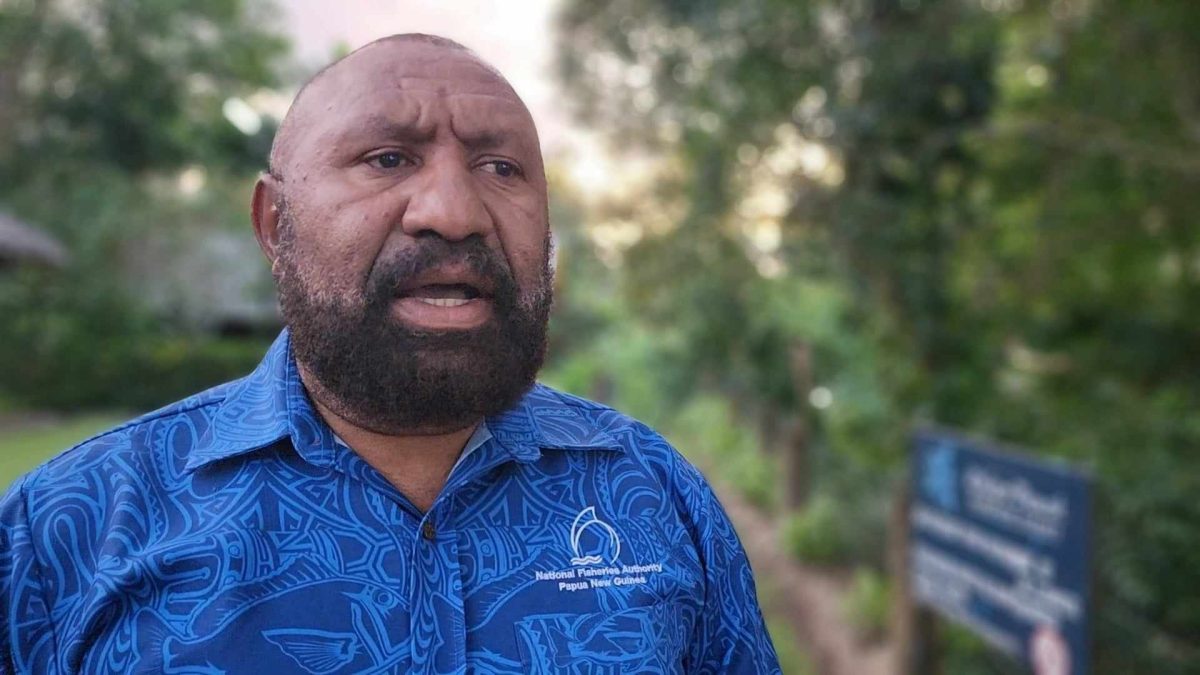With food security as its key all-inclusive vision for Papua New Guinea, the PNG National Fisheries Authority works towards an internationally competitive and sustainable sector and fishing industry, characterised by resilient and commercially inclusive socioeconomic growth.
The NFA Board Chair Laurie William and Communications guru Carolyn Ive were key leads in a media training event ahead of the Pacific Fisheries ministerial in Kokopo, and the Pacific Tuna Forum this week in Port Moresby.
In quick Q and A mode with PIF Public Affairs Adviser Lisa Williams Lahari, the PNG National Fisheries Authority’s Executive Officer Jonathan Manieva shares insights from the NFA media training dialogue sessions, ahead of practical mode reporting from the ENB initiative Ministerial and the 8th Pacific Tuna Forum.
Manieva, formerly in regional service with the Pacific Community, shares on the importance of NFA partnership events for the gatekeepers to mainstream news, what it means for NFA to be a competent authority, and the opportunities for Pacific nations to collectively benefit from PNG’s fisheries leadership in value-adding, on-shore processing.
JM- Currently the key issue that we wish for the media to promote, the media to socialize, the media to understand, are the technical correctness and aspects of some of the policies and some of the development frameworks of the tuna business. We are hoping that the facilitators of this workshop did convey or get the message or information across so that our journalists, our media are a little bit more aware, a little bit more knowledgeable when they go and participate in the Pacific Tuna Forum.
Q- So the NFA as not just another statutory body of government but a competent authority was spoken about. How should people understand that?
JM-The competent authority is a delegated mandate. In our case, we have these two export markets, or global export markets of the world, being the EU and US. They’ve given PNG this status and accreditation of competent authority meaning that they have come and undertaken institutional audits and performance appraisals to see that we, NFA does undertake and enforce those processes and procedures that are in place, and we and they can be assured that as per the international trade and import requirements required, we are compliant to them. That is at the forefront of ensuring health, food fish is fit for human consumption, and management of the tuna resource in the most sustainable and harvested in the most responsibly sourced way.
Q PNG fisheries leadership has also been talked about here — in your own experience what is the fisheries leadership moment you remember the most?
JM- I think we’ve taken a lot of lead in terms of the development of monitoring surveillance and control areas. If other people from other countries concerned with monitoring, surveillance and control of our stock come and visit the systems that we have, they’d be amazed that we really have the capacity that’s operational. It’s not by theory– it is operational systems that do enforce those requirements and global standards on illegal unregulated and unreported fishing. So, there is one area that I say PNG does take the lead in –the other front that PNG does take the lead in and it’s a moment that I’m happy to say we can be the leaders to lead our other Pacific countries is in onshore developments. The onshore developments where we can take the lead in having shore-based facilities that can value-add to our raw materials in the region, and then export to get a little bit more fair value from that resource having been processed and evaluated. And PNG leads on that front, and there is a room for other parties that don’t have those other prerequisite conditions and prerequisite support like land, water, to build big, shore-based facilities to come hand-in-hand with PNG because at the end of the day, the resource that we utilize to add value to and sell to the market is a collective one that we the whole region, all Pacific Island countries, collectively manage and while it’s in a managed form that can has the potential and is utilized in a sustainable manner, we can also go down the path of sharing the added value that PNG has gone ahead to taking the lead in, and going down the value-added, market-end, and the value of additional income coming from that space.
Q- Any last words?
JM-I just hope that there is some appreciation by all our Pacific countries coming in and responding and accepting the invite of our good Minister, to have this time, and to see that it IS time. It is time, and the time is now, to fully appreciate and understand that we must have some real, communal approaches in the development of fisheries, together. We’ve been talking about this for many years. Since I joined fisheries I’ve heard about this potential, and talks of the potential, but we haven’t realized that potential, so I’m hoping in this time of gathering there will be some consensus reached, some dialogues signed, and some work planned out to realise that.
SOURCE: PIFS/PACNEWS














